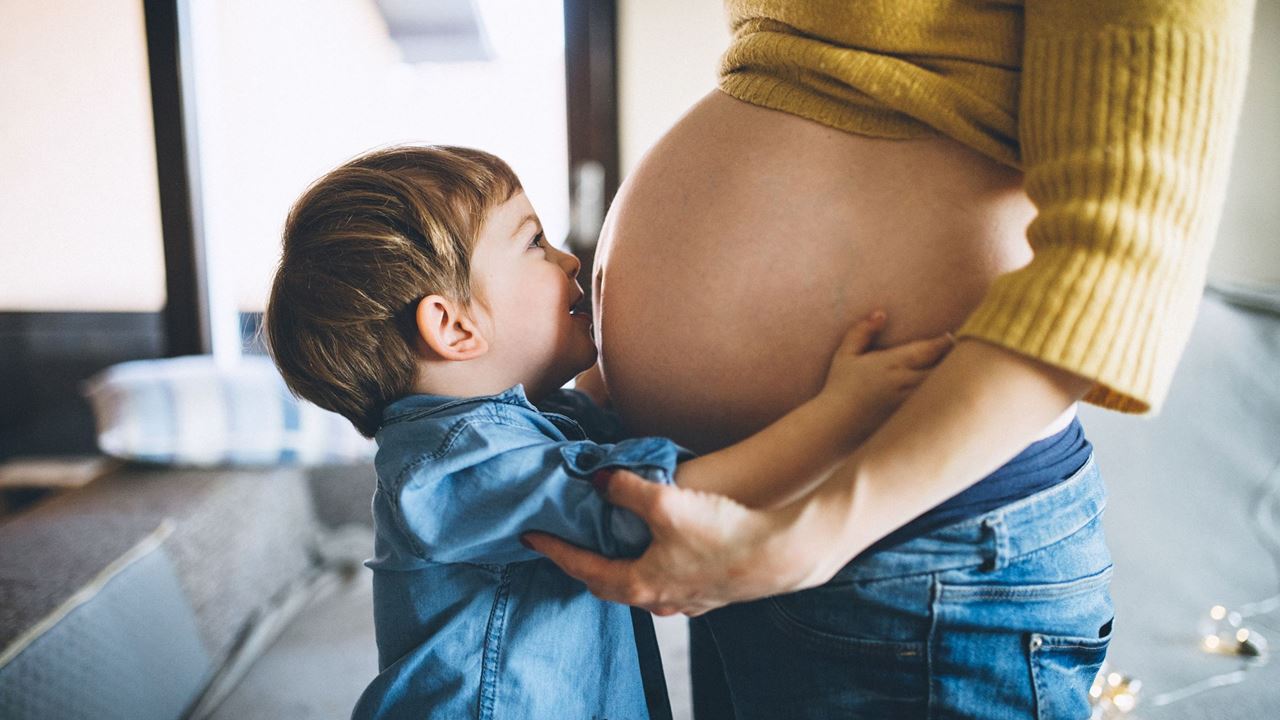Giving birth in Italy: Delivery day
Most deliveries in Italy happen at a hospital. In fact, only 0.4% of the population6 chooses home delivery compared to the rest of Europe (roughly 2%).
Hospitals in Italy have a one-person rule to limit infection. That means only one other person of your choice is allowed in the room with you. Once your baby is born, your little one will be taken away quite soon after to be bathed and swaddled, and brought back to you a few hours later.
New mothers generally stay for three days after giving birth. Fortunately, maternity and paternity leave is granted to anyone working in Italy. Maternity leave normally begins two months before delivery and can continue to three months after giving birth. Paternity leave is four mandatory days and one optional day, for the birth.3
Pregnancy and parenthood – cultural quirks in Italy
Being a mum isn’t the same everywhere. In Italy, you’ll probably be offered a glass of wine with dinner during pregnancy, which can seem odd if you’re from the Western world. Drinking espresso is also considered okay.7
One thing’s for certain – you won’t go hungry. When it comes to food, there’s a superstition around cravings. If a mother doesn’t experience any cravings, she must take a bite from every bit of food they see to ensure that all cravings are fulfilled.8
Having a baby in Italy is a whole family affair. While a baby shower before the birth isn’t common practice, gifts are lavished upon the mother at her hospital bedside. Italians never miss an opportunity to celebrate! Especially when another family member is being welcomed into the world.
Finding the support you need
If you’re new to parenting and to the neighbourhood, it can be overwhelming if you don’t have your support network around. There are a number of mums’ groups that you can join where you’ll be able to connect with other new parents – as both locals and expats. You’ll be able to find out more about these groups and how to join them by asking your doctor or midwife, and by doing some online research.
Our World of Wellbeing hub contains lots of useful tips and information about being a parent abroad. Whether you’re about to have your first baby, or you’re moving your whole family to a new country, there’s plenty of advice about how to help things go smoothly.
As an AXA member if you’re ever unsure of anything we’ll always do our best to put you at ease. There’s a team of midwives on hand through our health information helpline who’ll be able to answer any questions you might have about your pregnancy. Just call +44 (0)1892 556 753 between 8am to 8pm Monday to Friday, until 4pm on Saturday and until 12pm on Sunday (UK time).
If you have any questions about making a claim with us or what your policy covers, you can call us anytime, day or night on +44 (0)1892 503 856.
The information in this article is correct at the time of publishing.

